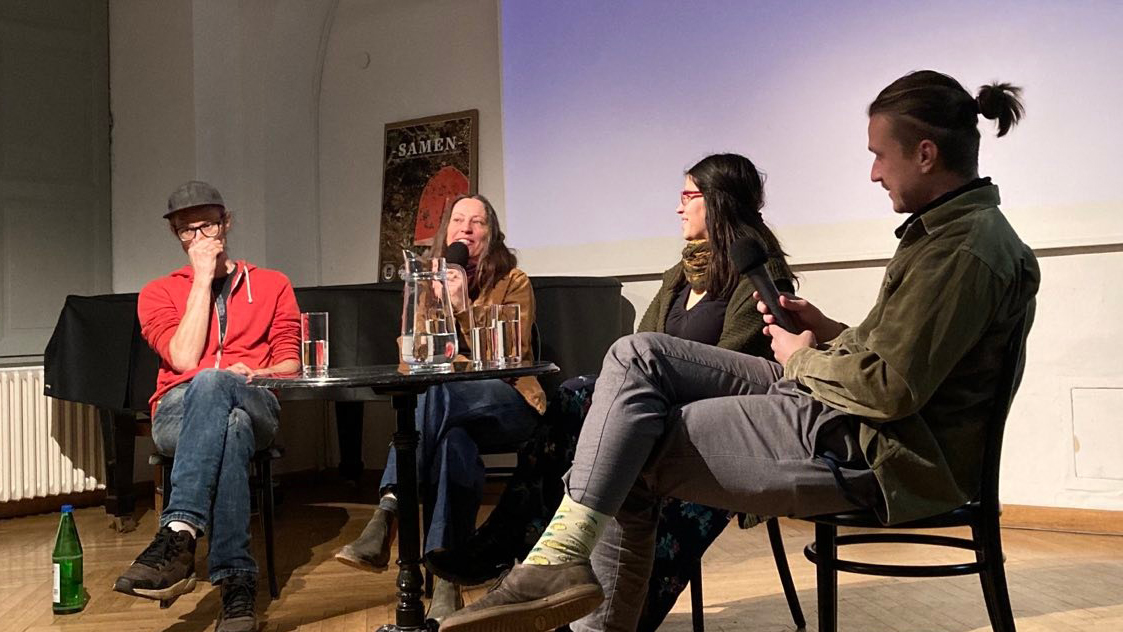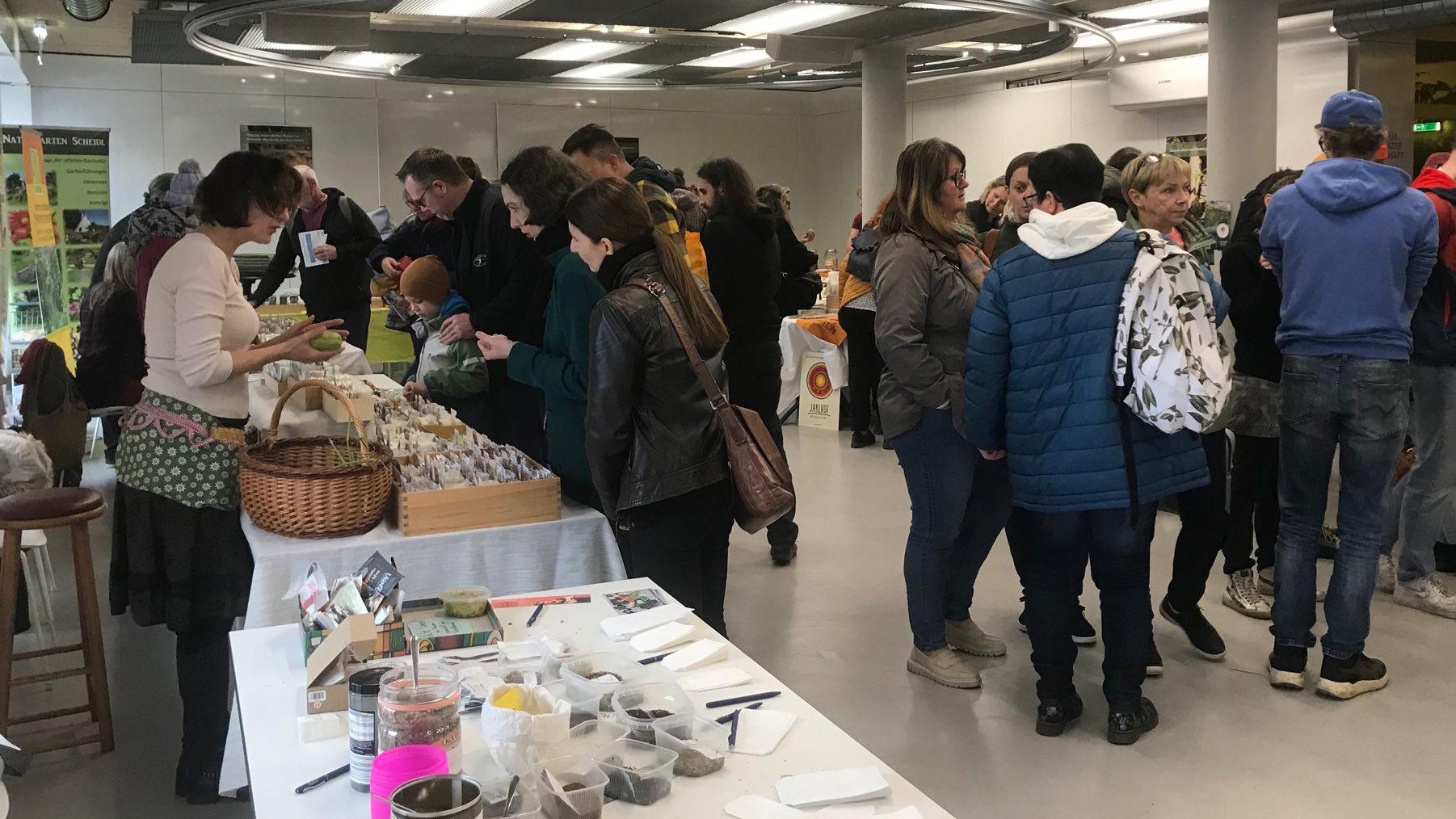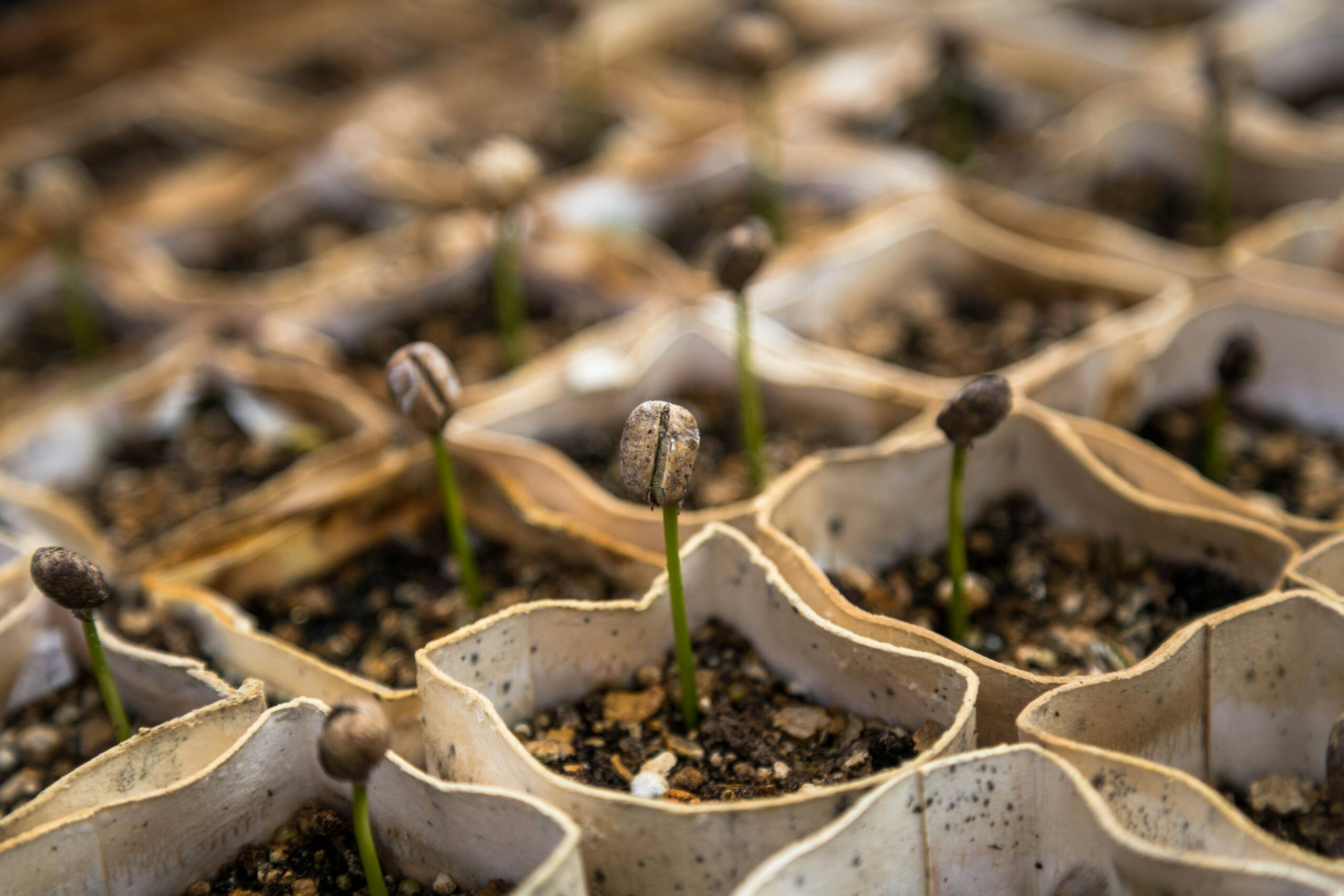Written by Borbála Lipka
This was the 11th year that the urban gardeners and seed enthusiasts of Graz organised a small festival to celebrate the diversity of seeds. As PLANET4B hosts a sectoral case study in Hungary that focuses on agrobiodiversity, seeds and seed systems, this was an excellent opportunity for two ‘neighbouring’ cases to meet on this event: the intensive case carried out in Graz that focuses on green urban spaces’ accessibility for women, and the Hungarian case that aims to discover the Hungarian seed systems.
For the first time in eleven years, the program took place on two days: on the 16th of February the event called ‘Seed Talks’ was organised in cooperation with the City Museum of Graz to raise awareness about the topic of seed diversity and the current processes concerning seed legislation in the European Union. The program was created in a way that covered various questions connected to seeds. First, to get a bit familiar with the topic, we watched Seeds of Europe, a 30-minute movie released at the end of 2023, featuring seed farmers from countries of Europe, talking about seed sovereignty and the importance of caring for our seeds. It is a really moving and powerful film, I recommend for everyone to check it out as it’s freely available on YouTube!

Photo: David Steinwender
Next, I had the chance to talk about not one, but two topics for all the guests who came visiting. In my first presentation I shortly summarised our research with ESSRG within the PLANET4B project about agrobiodiversity, and more precisely: about seeds and their diversity, from an intersectional perspective of gender. First, we did a small survey on Mentimeter: I asked the participants to share the words that first come to their mind when they think about the diversity of seeds – a question that we ask about agrobiodiversity in the interviews as well. Not so surprisingly, their answers were quite similar to those coming from the interviews.
Presenting this case, especially the intersectional perspective that is quite abstract, is usually a challenge. But seeds being the starting point of working with plants and thus are something all gardeners and farmers can connect to, so I believe I could say at least an interesting thing or two for everyone who came to the Seed Talks. I talked about the preliminary analysis of our interviews, the inequalities and possible leverage points of the seed systems in Hungary as well as our future plans involving some artistic activities connected to agrobiodiversity.
My second presentation was about Magház Association – one of our unofficial supporters in PLANET4B –, a Hungarian community seed bank that has members all over the country and conservation as well as lobby activities. I believe that this presentation complemented well the first one about the project as it gave some context about community seed networks and seed saving for the (urban) gardeners who came for the event.
After the presentations, there was a small roundtable discussion about the current seed legislation processes in the EU. Andreas Motschiunig (Forum Urbanes Gärtnern/FUG), the organiser of the whole event moderated a very interesting discussion with Ulli Klein (CSA farmer), Josef Obermoser (community gardener) and myself. We concluded that though there’s always place for development concerning the legislation, at the moment the situation is not as bad as you can hear sometimes in the news – but that we also have to pay really close attention to the ongoing seed legislation reform and voice our opinions as the situation could change in a very short time.
The last presentation of the evening was held by Bernhard Gruber from the Austrian Forest Garden Institute (Österreichishes Waldgarten-Institut) about permaculture and food forests. Bernhard gave a lot of example of what kinds of plants can be planted in a food forest and talked about how to use ‘alternative’ plants such as weeds and lesser known cultivated plants in the kitchen.
The Seed Talks lasted for about three hours and gave a lot of food for thought for sure! The different elements of the program could show something interesting to everybody who came to listen, and raise awareness about the importance of seeds and seed systems in the same time.

Photo: David Steinwender
The next day, on the 17th of February, the 11th Seed Festival of Graz took place in the middle of the city. There were three types of stands on the event: one could bring their own seeds and swap them at the table of the organisers; there were a couple of seed producers who sold their own seeds; and there were representatives from community gardens around Graz who also brought a lot of seeds for swapping them. The seed swap lasted from 10 in the morning until 16 in the afternoon and there were a lot of people coming and going all day: some urban gardeners, some farmers and gardeners from the surroundings of Graz, some people just popping in. A lot of seeds exchanged owners and there was a lot of space for exchanging experience and knowledge about gardening or specific varieties as well. All in all it was a really lively and inspiring event!
